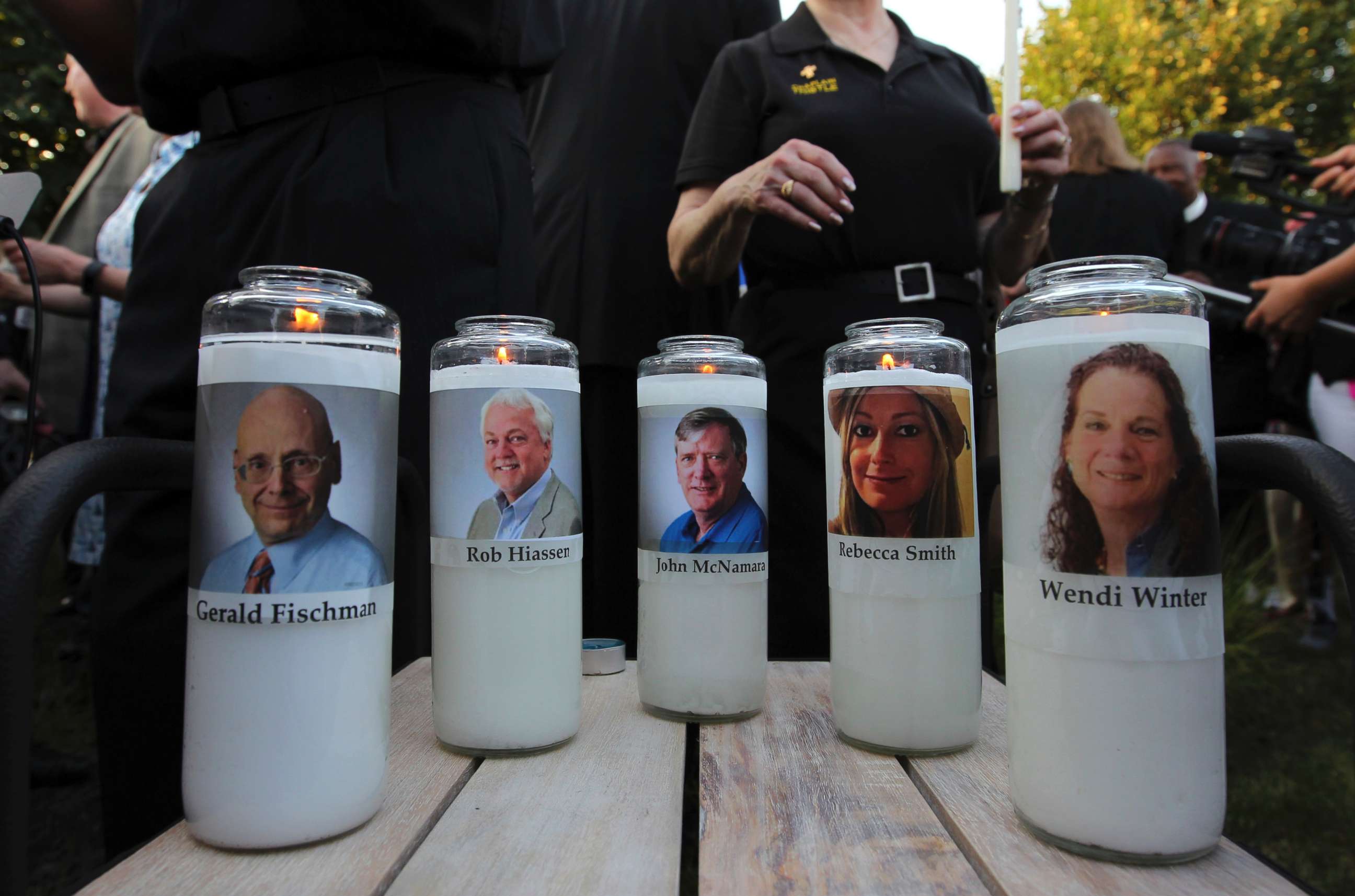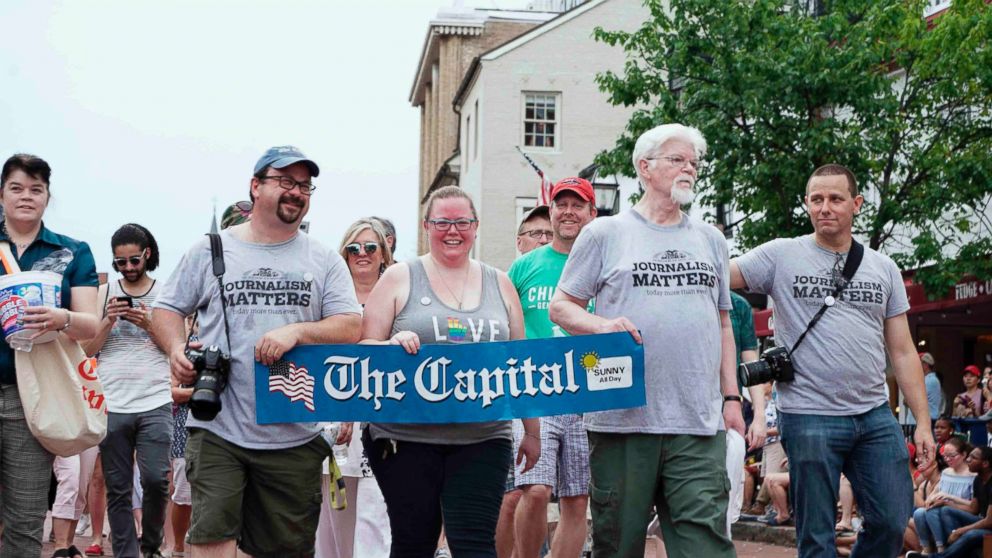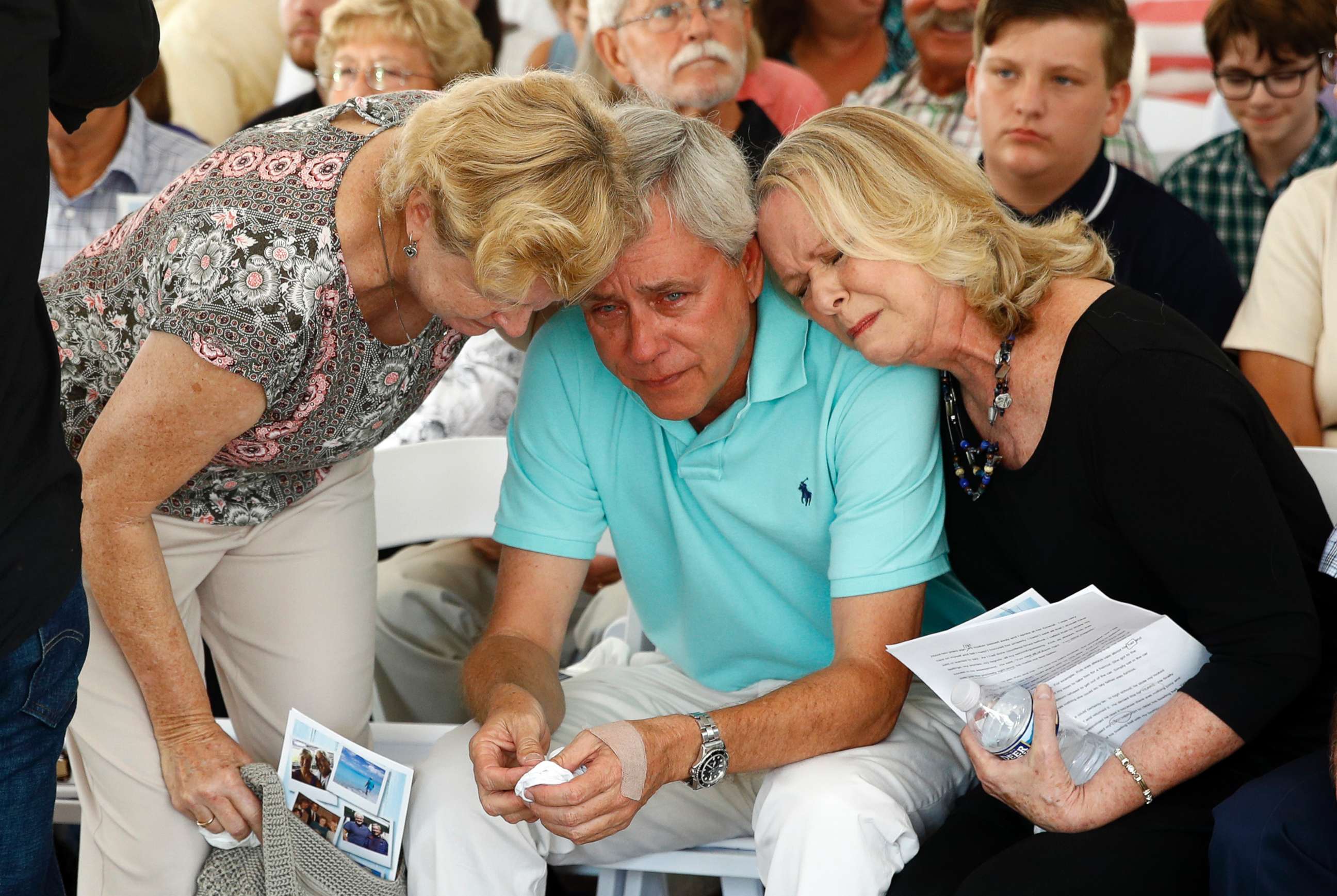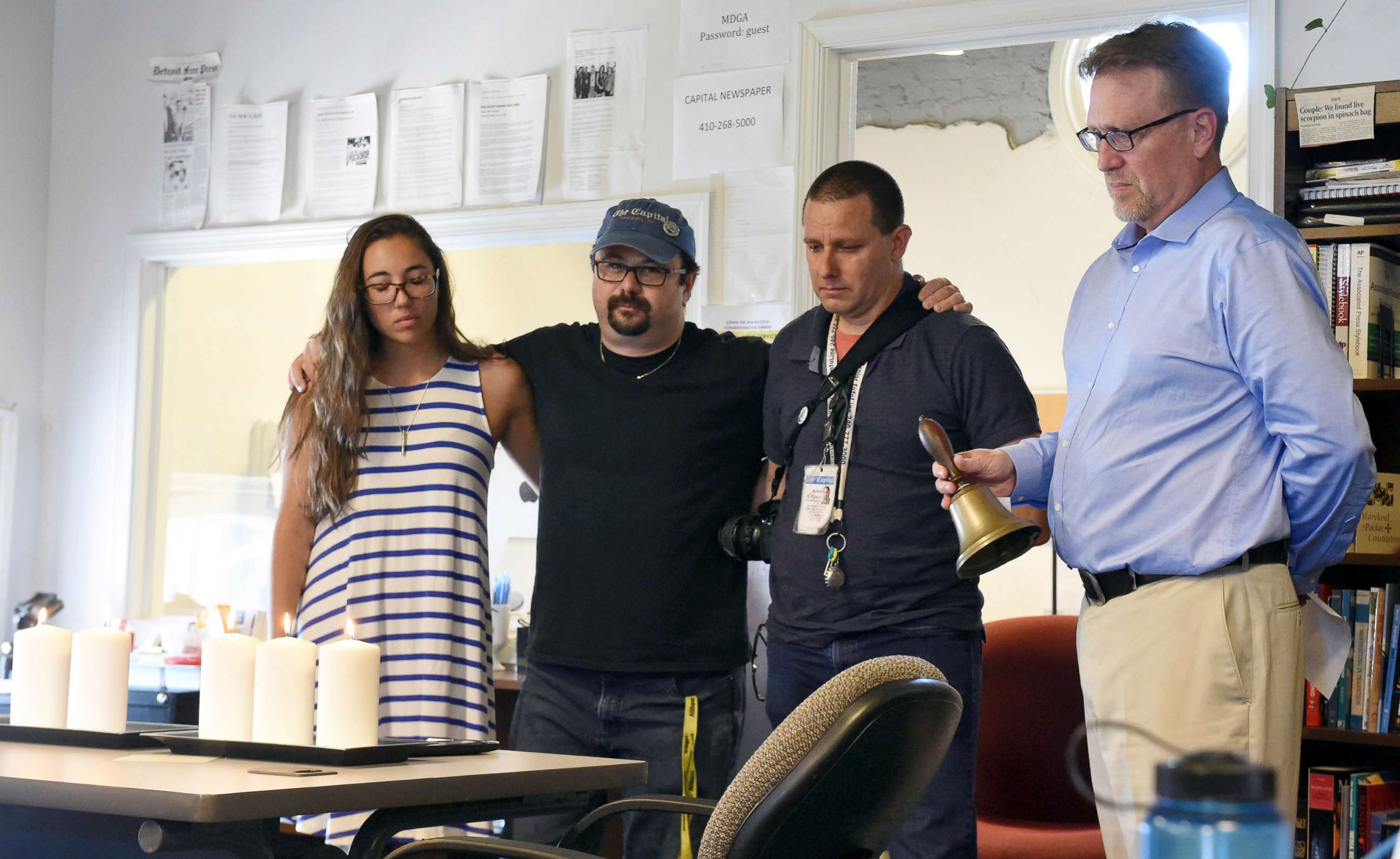Former Capital Gazette editor on danger of society's changing perception of journalists: 'What happened at the Capital is not isolated'
"Why isn't the world ... waking up and saying, 'We have a problem here?'"
In June, five journalists were murdered in a shooting at the Annapolis, Maryland, newspaper the Capital Gazette. The paper’s former editor, Tom Marquardt, told ABC News he now sleeps with a .357 Magnum.
"I never had a weapon in my life," he told ABC News' Brad Mielke for the ABC News podcast "Start Here."
"Every day is precious to me," he said. "And this incident goes to show you that you just don't know when somebody is going to turn around a corner and decide to take out their anger on you."

Marquardt, who left the paper in 2012, was at home in Florida on June 28 when Jarrod Ramos, 39, killed five people at the newspaper and injured two others.
"I could be among the casualties," he said. "So I don't take that for granted every day. Not anymore."
Marquardt had covered shootings at the Gazette, but his perspective has shifted now that he had personally experienced the loss and devastation of one.
"I think about the people who are back in Annapolis who lost loved ones and who have to continue to go back to work and their burden is much greater than mine," Marquardt said.

He observed what he called "a ripple effect" of a shooting -- not only are lives cut short, but all the survivors carry that weight for the rest of their lives.
"Just think of all the murderers out there and all the mass shootings," he said. "After this, there are all sorts of survivors and people who were in the building at the time, who were still shaken to this point, who just feel that they can't trust anybody ... there are people who died in the beginning, but the people that [a shooting] affects ... is magnified by a thousand."
Marquardt said in the wake of the shooting, returning to Annapolis for the memorials "was sort of a homecoming."
"Not the one that you want, but there was a reunion not only of current staff members, but also members that had been my former employees. ... I was there for 35 years," he remembered. "There are just a ton of people that gathered around and just lots of hugs lots of tears lots of emotion."

"You know we try to reminisce, but it was probably one of the most grueling things I've done ... because it was not just one person, but it was five. I was only able to make three of those ceremonies. It was difficult."
Marquardt said there was "an incredible outpouring of support" from the community in the wake of the shooting: "They raised just shy of $2 million for the families. They had parades ... the online subscription to the paper had gone up six, seven hundred subscribers. They dedicated a classroom at the University of Maryland where the victims were graduates. The sports writer had a couple of seats in the press booth that were dedicated to him. Time Person of the Year."
"It just goes on and on," he added. "However great, they are just reminders of the tragedy that happened."
After the ceremonies were over, Marquardt notes, "those who are still around have to carry on with his burden hanging over them... It was something that just wouldn't go away. They had to go back to that same newspaper report all those stories and with their colleagues gone."
In 2011, The Capital Gazette wrote a story about Ramos being put on probation for harassing an acquaintance from high school. In response, he brought, and later lost, a defamation lawsuit against the paper and allegedly wrote threatening messages to the staff and owners before he brought a shotgun to their offices in June.
Ramos was arrested and charged with five counts of first-degree murder. He is being held without bond as he awaits trial.
In the days following the shooting, investigators found that Ramos had allegedly sent threatening letters to the Baltimore Circuit Court, Maryland's Court of Special Appeals and a law firm in Baltimore.
Marquardt said his lawyer told him to be vigilant for a letter sent to him, possibly containing harmful chemicals.
"It was like a story that just kept going, even though he was behind bars at this point. The threat was still out there," he said.

For Marquardt and the Capital Gazette staff, that story still isn’t over.
Earlier this month, Time magazine named The Capital Gazette staff a part of their 'Person of the Year.'
Marquardt weighed in on the magazine’s decision to honor persecuted journalists.
"It was foreign. It was domestic. And so I think the takeaway from that is that what happened at the Capital is not isolated," he said. "It's happening across the world and always has happened across the world -- but until now, most of the deaths that occurred to journalists who were [in] third world countries -- if that isn't a bell that goes off, I don't know what is."
"Why isn't the world, especially in this country, waking up and saying 'You know, we have a problem here?' And you know 'Why is it that the newspaper, part of the First Amendment, isn't getting the protections and credit that they deserve?'" he said.
"We are part of the problem" of society’s changing view of journalism, Marquardt said. "We made our mistakes, but the First Amendment didn't say that it was a perfect organization, it just said that whatever we do ought to be protected or freedom of speech."
"For the first time in our history ... people are getting their news more so from social media than they are newspapers," he said. "We've been really lost as a credible source."
As for those who see news they don’t agree with as simply not credible, Marquardt says "they see us with a motive."
"There was a time in which we didn't have that, and I think a large part of it has just been the advance of technology, in which ... the broadcast stations have to fill airwaves 24 hours and so they bring the pundits on. And same with newspapers ... we have our columnists. We have to fill the pages," he said.
He said though media critics group journalists in with those trying to influence opinion, he believes journalists are truly separate.
"Journalists to this day have the same ethic that they did when I first got into journalism and that is to report the truth, even if it was brutal in the end."
This report was featured in the Dec. 27, 2018, episode of ABC News' daily news podcast, "Start Here."
"Start Here" is the flagship daily news podcast from ABC News -- a straightforward look at the day's top stories in 20 minutes. Listen for free every weekday on Apple Podcasts, Google Podcasts, iHeartRadio, Spotify, Stitcher, TuneIn, or the ABC News app. On Amazon Echo, ask Alexa to "Play 'Start Here'" or add the "Start Here" skill to your Flash Briefing. Follow @StartHereABC on Twitter, Facebook and Instagram for exclusive content, show updates and more.



